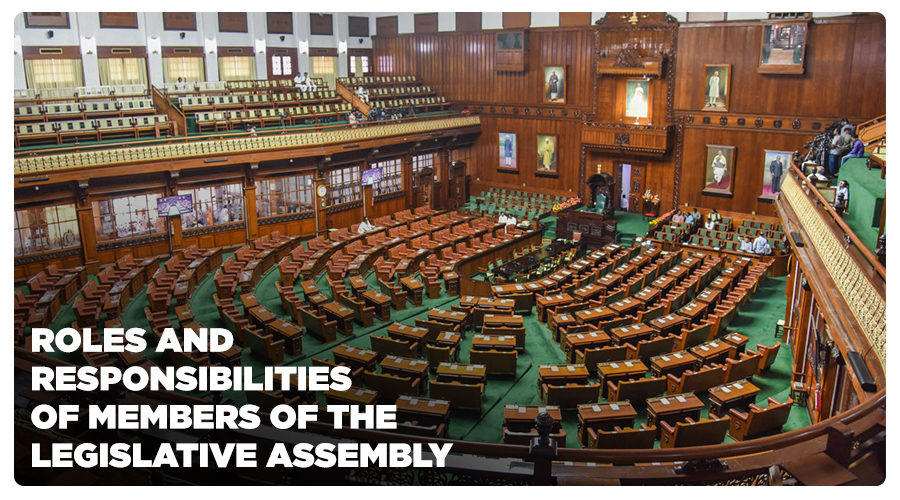Citizens Meet Candidates
Candidates, C Narayanaswamy (INC), Babu Mathew (AAP) and Abdul Azeem (JDS) were present at this interaction along with around 450 citizens. This debate was high on energy levels as points made by the candidates were crisp and witty. BJP candidate and former Chief Minister of Karnataka, Sadananda Gowda was not present.
The interaction began with a discussion moderated by K. Jairaj and Kiran Mazumdar Shaw, the President of B.PAC. C Narayanaswamy’s plans were to recharge groundwater in the city to avoid acute shortage and provide housing security to labourers. He also committed to implementing the Paramashivaiah report recommending usage of river Netravati water. Babu Mathew said he would take forward AAP’s agenda of fighting corruption and setting up ward committees. Within the city he would strive to break the water and garbage mafia and also promised that as a Parliamentarian, he would never jump into the well of the house. Abdul Azeem felt that Bangalore can be made a safe city through good law and order. He plans to set up free diagnostic centres across his constituency, and would also look into issues of deserted senior citizens and women’s safety.
The discussion was moderated by K Jairaj, after an introduction by Harish Narasappa, B.PAC. The panel comprised of contestants from leading parties for Bangalore Central Parliamentary Constituency – Nandini Alva (JDS), P C Mohan (BJP), Rizwan Arshad (INC) and V. Balakrishnan (AAP).
In this interaction the candidates began by telling the constituents why they considered themselves the right candidate and later went on to speak about important issues they have identified in the constituency, how they planned to address it and which issue they would raise in the parliament. The candidates also spoke about how the public could access them after the elections.
P C Mohan felt traffic, garbage and education were priority issues. Nandini Alva said implementing existing central schemes would be on her list in addition to women empowerment, small scale industries, malnutrition and micro finance. V Balakrishnan felt that 5% of any programme was strategy and 95% implementation and issues of water and garbage were priority. All candidates promised to get more central funds for the city.
The Bangalore South interaction was the high octane first of the three organised debates and had the following candidates participating — Ananth Kumar (BJP), Ruth Manorama (JDS), Nandan Nilekani (INC) and Nina Nayak (AAP). It was well attended with over a 1000 citizens and supporters. The discussion was moderated by K. Jairaj and Kiran Mazumdar Shaw, the President of B.PAC.
The candidates were introduced and the moderator asked them to talk on the subject in the given time limit. The first topic was candidates’ opinion and plans on Urbanisation and Urban Development – Ananth Kumar spoke on work done in the past by his party; Nandan Nilekani said he would focus on water, transportation and jobs in the city; urban management, equality, women’s safety and anti-corruption were on top of Ruth Manorama’s list and Nina Nayak said she would work on decreasing pressure on Bangalore by focussing on developing satellite towns, introduce transparency and accountability in the system and revive ward committees.
The second topic was the issues they will raise in the parliament as MPs. Nandan Nilekani said he would try to get more funds for cities, introduce systemic solutions to stem corruption and raise the issue of job creation; Ruth Manorama said she would push forward already existing committee suggestions on Police Reforms, the 15 point agenda for minorities, 33% Women’s Reservation Bill and would also emphasise on urban management; Nina Nayak said AAP would ensure the Jan Lokpal bill would be passed in its true spirit, address issues on child safety, will shift focus to manufacturing industries and seek to make funding transparent and accountable. Ananth Kumar said he would focus on the country’s security.
In the latter portion of the programme, there was sloganeering and disruption by party supporters and had to be cut short; but not before all candidates shared their plans with the public. This incident was a great leraning for us – while citizens were eagerly awaiting this debate, the political parties showed a lack of maturity in dealing with an open debate. Therefore, we were constrained to change the structure to an invite only format for the two subsequent debates.



